Water
This year, we estimated that our total water usage was 3,858 megalitres, 29.3 per cent higher than last year.
This increase can largely be attributed to a change in the methodology that has allowed us to improve our estimation of water used by our convenience stores and liquor stores.
The estimated water consumed by our supermarkets was 2.4 gigalitres, and during the year we installed smart meters in 119 supermarkets around Australia to better track, trend and report water consumption. Real-time data is collected via a website and any abnormal usage or leakage by a store can be immediately investigated.
Waste and recycling
This year our recycling rate improved to 60.5 per cent from 58.5 per cent, largely due to redirecting a higher volume of surplus food from our supermarkets to people in need.
Through our programs with SecondBite and Foodbank and organic recycling at 129 stores, we have diverted 7,446 tonnes of food waste from landfill.
We recycled 143,854 tonnes of cardboard, paper, plastic and metal and sent 98,902 tonnes of waste to landfill.
Plastic bag bans
Bans on the issue of single use light weight plastic bags in the Northern Territory and the Australian Capital Territory commenced in 2011. Coles offers these customers a range of alternative shopping bag options, including green reusable bags, chiller bags and reusable plastic bags.
Televisions and computers
The Product Stewardship (Televisions and Computers) Regulations 2011 have been introduced. Coles will participate in a co-regulatory arrangement with other Wesfarmers businesses to facilitate a consumer recycling program.
Cash for Containers
The Cash for Containers Scheme commenced across the Northern Territory on 3 January 2012. It is consistent with the South Australian approach, and we are working with our suppliers to ensure that all eligible beverage products sold by Coles have been approved under the Scheme and meet new labelling requirements.
Packaging improvements
Since assessing more than 1,800 Coles-branded products against the sustainable packaging guidelines, which are part of the Australian Packaging Covenant, we have improved and re-rated packaging for 55 products from red to green. For example, non-recyclable film on ‘Coles Smart Buy Sardines in Tomato Sauce’ was replaced with a recyclable board sleeve, making the product’s packaging completely recyclable. Recycling instructions have also been added to the packaging to make recycling easier for customers.
As part of relaunching Coles’ fresh organic range in 2012, packaging was reviewed to identify areas where excess packaging could be removed or more sustainable packaging materials could be used.
Environment protection and Coles Express
This year, Coles Express worked with Shell Australia and its contractors in New South Wales to implement the Vapour Recovery Regulation. The aim of the regulation is to reduce the amount of toxic and smog-forming pollutants released at service stations.
Biofuels
In 2011, our ethanol blended fuel (E10) was withdrawn from Coles Express sites in Queensland and Victoria due to supply constraints and state government mandates ceasing. We continue to supply E10 in New South Wales at 167 sites where the Biofuels Act 2007 imposes a mandate.
Carbon and energy
Our estimated total carbon emissions were 2,401,609 tonnes, which is five per cent lower than last year and equates to 70.4 tonnes of CO2e per million dollars of revenue, down 10.5 per cent on last year.
In preparation for the federal government’s Clean Energy Future legislative package, we have sought to mitigate our energy use and carbon emissions through a range of initiatives, including installing voltage optimisation technology in 182 stores during the year, which allows us to draw less energy from the public grid and reduce store power consumption.
We have also undertaken a range of research and development projects to identify future initiatives that will improve the efficiency of lighting, refrigeration and climate control at our stores. For example, we are combining our refrigeration and air conditioning plants into one system for new stores and refurbishments in the coming year, which, as well as lowering installation costs, is estimated to deliver a seven per cent saving in energy consumption.
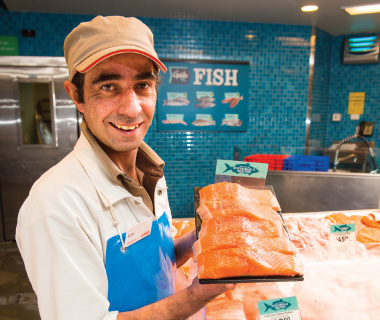
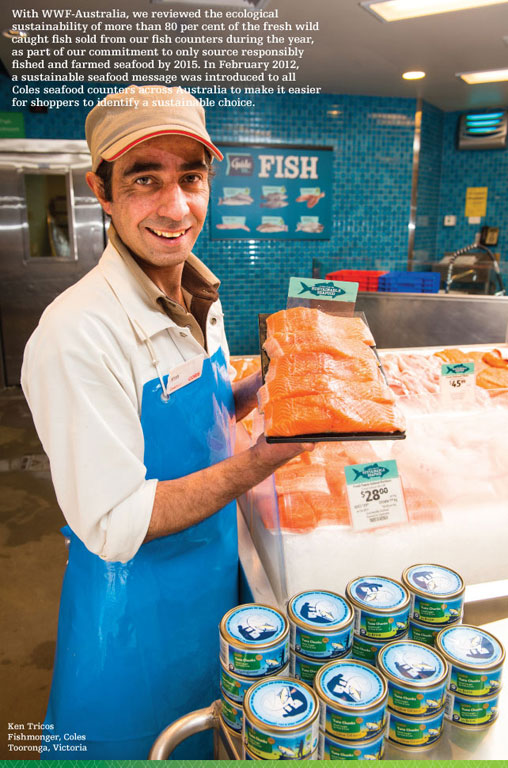
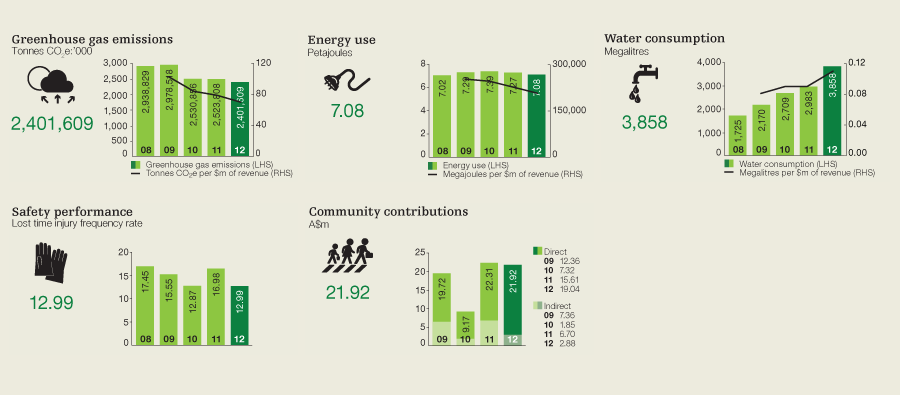
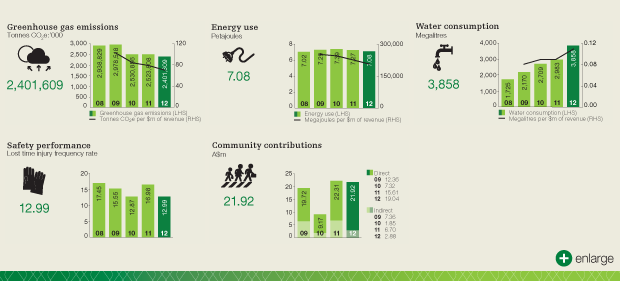
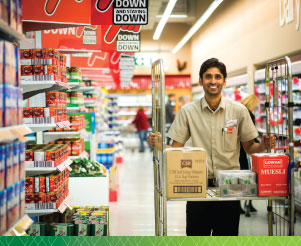 can be found on our website at www.coles .com.au/About-Coles/Community/Indigenous-Plan.aspx
can be found on our website at www.coles .com.au/About-Coles/Community/Indigenous-Plan.aspx